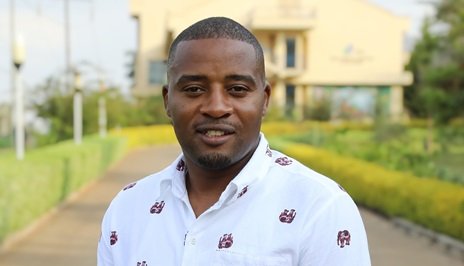Saturday, 21 February 2026

He is recognized for spearheading the development of novel, low-cost technologies for recycling organic waste into nutrient-rich, disease- and pest-resistant, insect-composted organic fertilizers.
Dr Dennis Beesigamukama, Postdoctoral Fellow at the International Centre of Insect Physiology and Ecology (icipe), has been named the 2024 Recipient of the Norman E. Borlaug Award for Field Research and Application, endowed by The Rockefeller Foundation. He is recognized for spearheading the development of novel, low-cost technologies for recycling organic waste into nutrient-rich, disease- and pest-resistant, insect-composted organic fertilizers within a fraction of the time it takes to produce other organic fertilizers, addressing agricultural soil degradation challenges for over 100,000 farmers in East Africa and beyond.
Beesigamukama comes from a farming family in Southwestern Uganda. His early exposure to the challenges of rural agriculture and soil degradation fueled his passion for soil science, which led him to Makerere University, where he earned his B.Sc. in agricultural land use and management and his M.Sc. in soil science. His thesis research on composting water hyacinth weed into organic fertilizer for managing the highly weathered soils in Central Uganda showed him the great need for affordable, locally produced fertilizers. The need for local solutions to soil fertility has only grown in recent years, with escalating costs and unavailability of synthetic fertilizers due to disruptions in supply chains caused by the Russia-Ukraine conflict.
In 2017, Beesigamukama began his Ph.D. at Kenyatta University, working with icipe to research the development of insect-based compost for sustainable soil health management and crop productivity. He used black soldier fly larvae, a common edible insect raised for animal feed, to recycle organic waste into nutrient-rich organic fertilizer made from the insects’ frass, or shed skins and feces. By doing this, he expedited the natural composting process to yield nutrient-rich fertilizer in just five weeks, in contrast to the usual methods, which require six months.
His research also demonstrated insect-composted organic fertilizer had a higher nutrient content than commercial organic fertilizers, animal manure and plant-based compost. In comparison to commercial fertilizers, he showed insect-based fertilizers could significantly increase yields of major grain and vegetable crops, including maize, amaranth, tomatoes and beans.